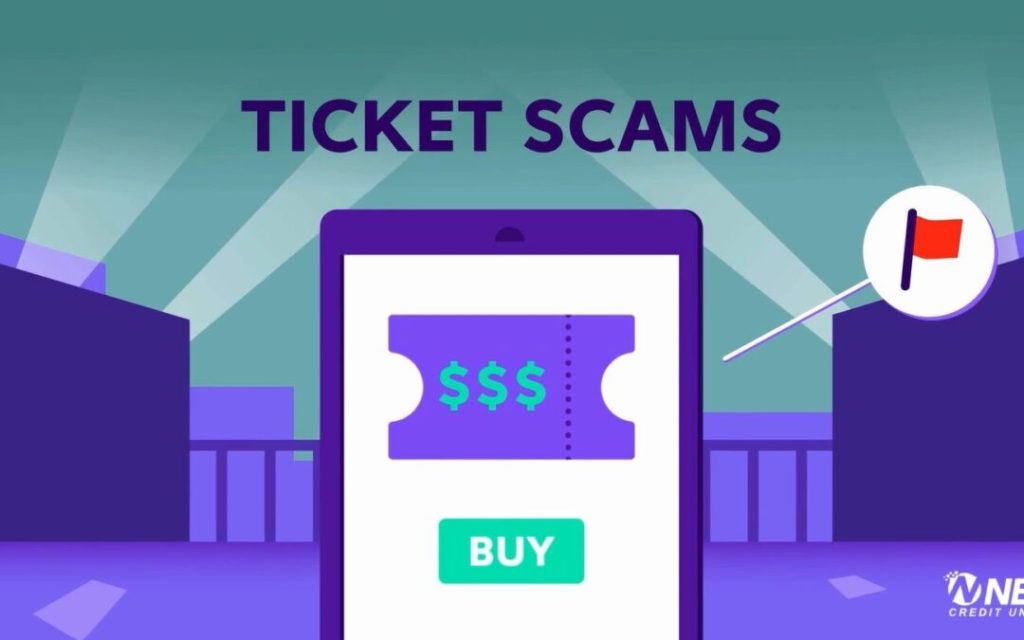
In the digital age, buying tickets online has become the norm, whether it’s for concerts, sports events, theater shows, or travel. However, with the convenience of online shopping comes the risk of falling victim to ticketing scams. These scams can not only cost you money but also leave you stranded without a ticket to your much-anticipated event.
In this blog, we’ll cover five common ticketing scams and provide actionable tips on how to avoid them, ensuring a safe and secure ticket-buying experience.
1. Fake Ticket Sellers
One of the most common ticketing scams involves fake ticket sellers who set up fraudulent websites or social media profiles offering tickets at an irresistible price. These scammers promise to send you tickets after payment, but you never receive them, or the tickets are counterfeit.
How to Avoid:
- Buy from Authorized Sellers: Always purchase tickets from official platforms like Ticketmaster, StubHub, or directly from the event organizer’s website. These trusted sites offer secure transactions and guarantees.
- Check for Verified Sellers: On secondary marketplaces like StubHub or Vivid Seats, check if the seller is verified. Verified sellers are less likely to offer fake tickets.
- Research the Seller: If you’re buying from a third-party, do a quick background check. Look for reviews, ratings, and feedback from other customers.
2. Too-Good-to-Be-True Discounts
Scammers often lure customers with deals that seem too good to be true. They advertise tickets at a fraction of the original price to grab your attention. Once you make the payment, the tickets either turn out to be invalid or never arrive at all.
How to Avoid:
- Stick to Market Prices: Be wary of offers that are significantly lower than face value. If the deal feels too good to be true, it probably is.
- Use a Credit Card: Credit cards often offer fraud protection, which can be helpful if you fall victim to a scam. Avoid wire transfers or using gift cards, as these methods are harder to trace and can be non-refundable.
- Check the Source: Always buy tickets from reputable, official platforms that display clear refund and cancellation policies.
3. Phishing Scams
Phishing scams are another prevalent form of ticketing fraud. In these scams, you may receive an email, text message, or social media post that appears to be from a legitimate ticket provider. These communications often include a link to a fake website that asks for your personal and financial information.
How to Avoid:
- Verify the URL: Always check the website URL before entering any personal or payment information. Official ticket vendors’ websites typically have URLs that start with “https://” and are followed by the company name.
- Don’t Click Suspicious Links: Be cautious of unsolicited emails or messages that ask you to click on a link to purchase tickets. Instead, visit the official website directly.
- Look for Red Flags: Misspellings, strange language, or a sense of urgency (e.g., “Hurry! Only 3 tickets left!”) are common signs of phishing.
4. Fake Ticket Resale Platforms
Some scam websites mimic popular ticket resale platforms, offering “great deals” on tickets from resellers. These sites might look legitimate, with sleek designs and professional logos, but their primary goal is to steal your money. Once you’ve paid, you receive either nothing or a counterfeit ticket.
How to Avoid:
- Do Your Homework: Before purchasing, confirm the legitimacy of the website. Look for trust signals, such as SSL encryption (https://), contact information, and a return policy.
- Check for Reviews: A quick Google search for customer feedback can reveal whether a ticket resale site is reputable or a scam.
- Avoid Unknown Resale Sites: Stick to widely known and reputable ticket resale platforms, such as SeatGeek, Vivid Seats, or StubHub.
5. Counterfeit eTickets
With the rise of digital ticketing, e-tickets are now more popular than ever. However, some scammers sell counterfeit or duplicated e-tickets that look identical to the real ones. Once scanned at the event, the barcode is often flagged as invalid, leaving you without entry.
How to Avoid:
- Check the Source of Your eTicket: If you’re purchasing e-tickets, ensure you are buying directly from the official event organizer, box office, or reputable ticket platforms.
- Verify the Barcode or QR Code: Some official ticket vendors allow you to verify your e-ticket online before the event. Utilize these tools to confirm your ticket’s authenticity.
- Use Trusted Platforms: Official sellers and recognized platforms (like Ticketmaster) offer added security features like a ticket guarantee or ticket insurance.
How to Stay Safe While Purchasing Tickets Online
In addition to avoiding the scams mentioned above, here are a few general tips to protect yourself when buying tickets online:
- Use Secure Payment Methods: Credit cards, PayPal, or other secure payment systems offer buyer protection. Avoid paying through wire transfers or cash, which are harder to trace.
- Enable Two-Factor Authentication (2FA): If the platform you’re purchasing tickets from offers two-factor authentication, enable it to add an extra layer of security to your account.
- Monitor Your Bank Statements: Always check your bank or credit card statements after making a purchase to spot any unauthorized charges quickly.
- Report Scams: If you encounter a ticket scam, report it to the platform where the scam occurred. This helps protect other consumers from falling victim to the same fraud.
Conclusion
Ticketing scams can be frustrating, but with a little vigilance and knowledge, you can protect yourself from falling victim. Stick to trusted, official sources, use secure payment methods, and always double-check the authenticity of the tickets before purchasing. By following these tips, you’ll be able to enjoy your events without worrying about scams ruining your experience.
Don’t let a scam ruin your plans! Stay safe, buy wisely, and enjoy the show.

As always if you are looking for a great event to attend you can purchase tickets HERE.
Other Articles








